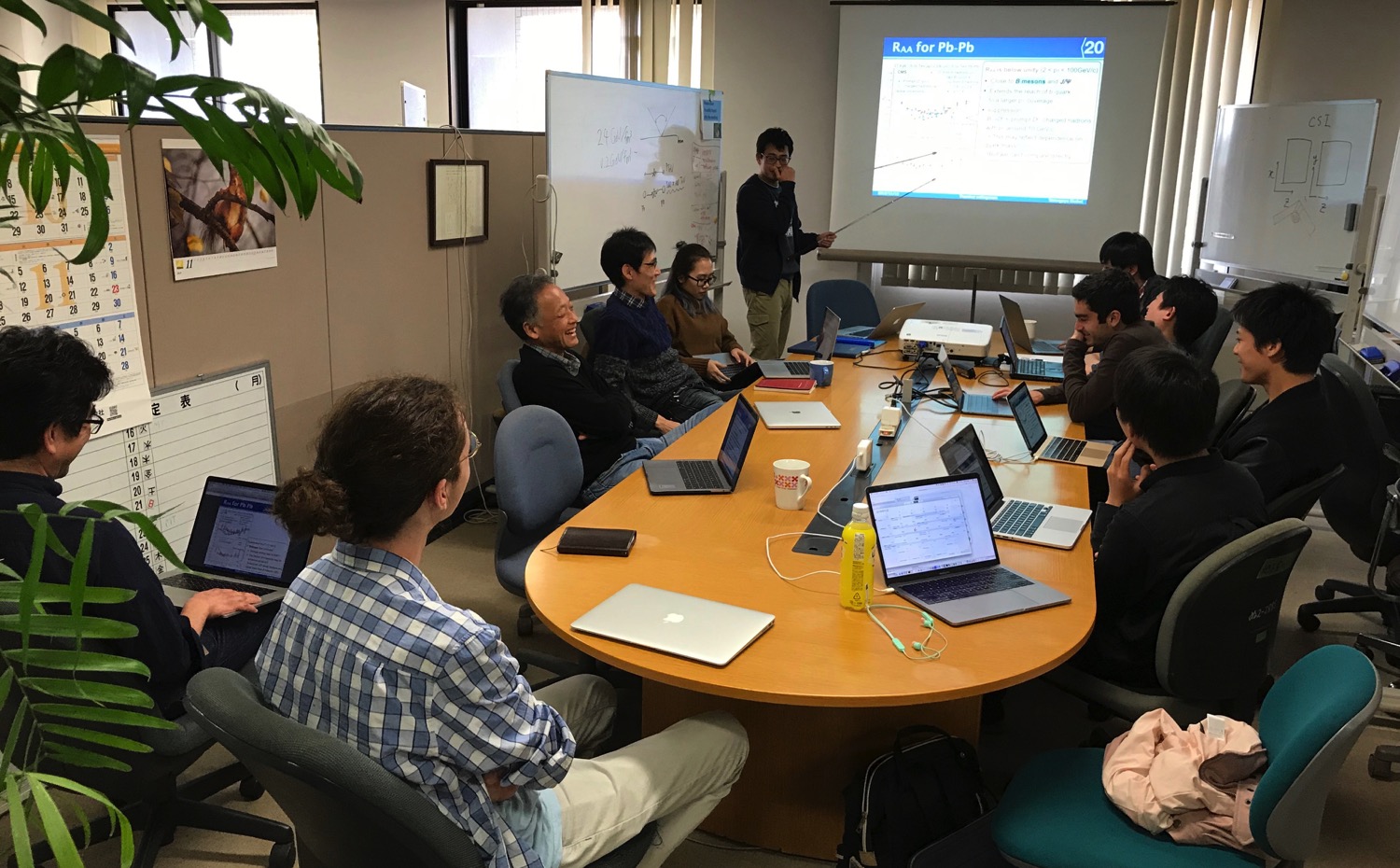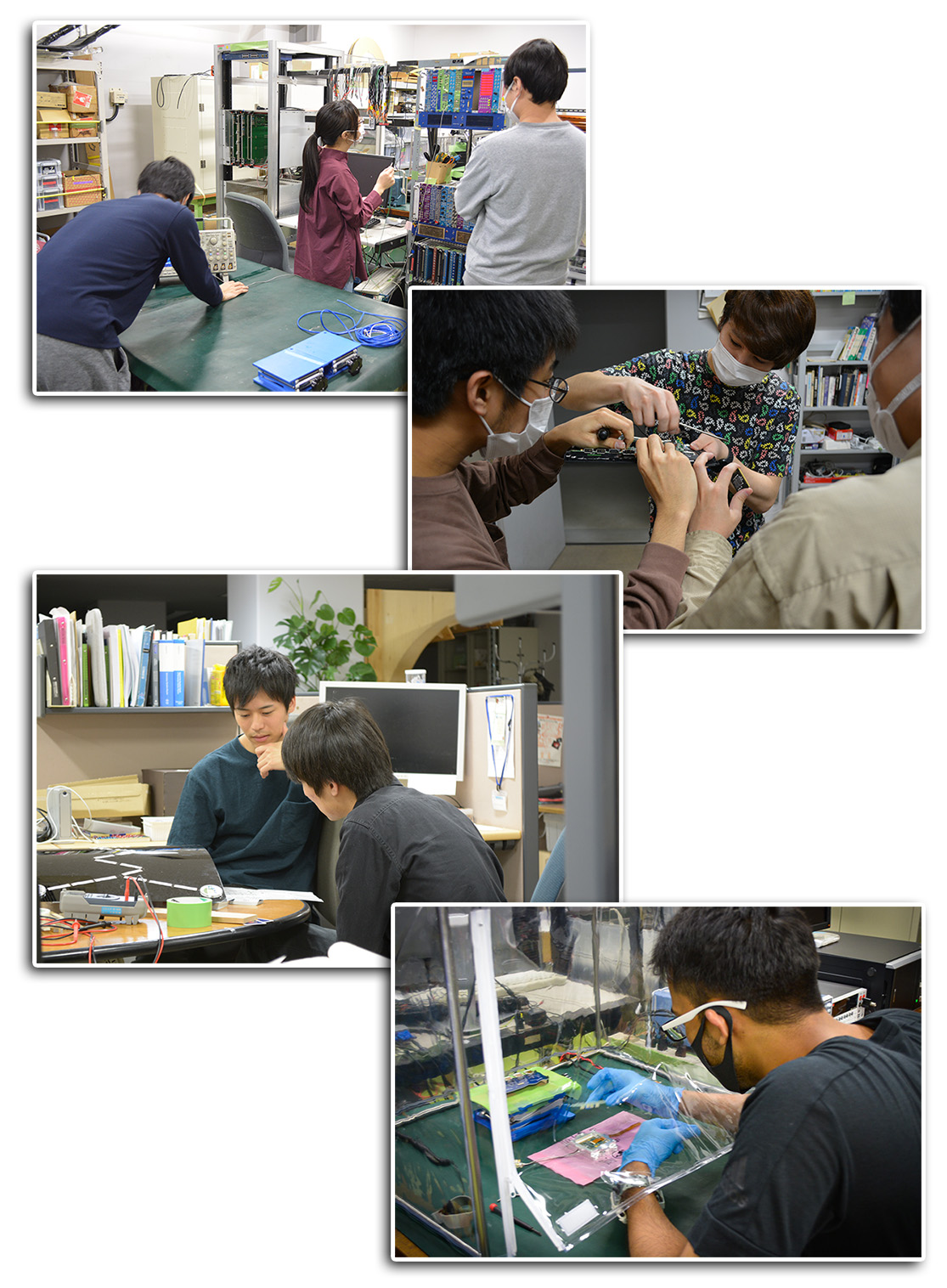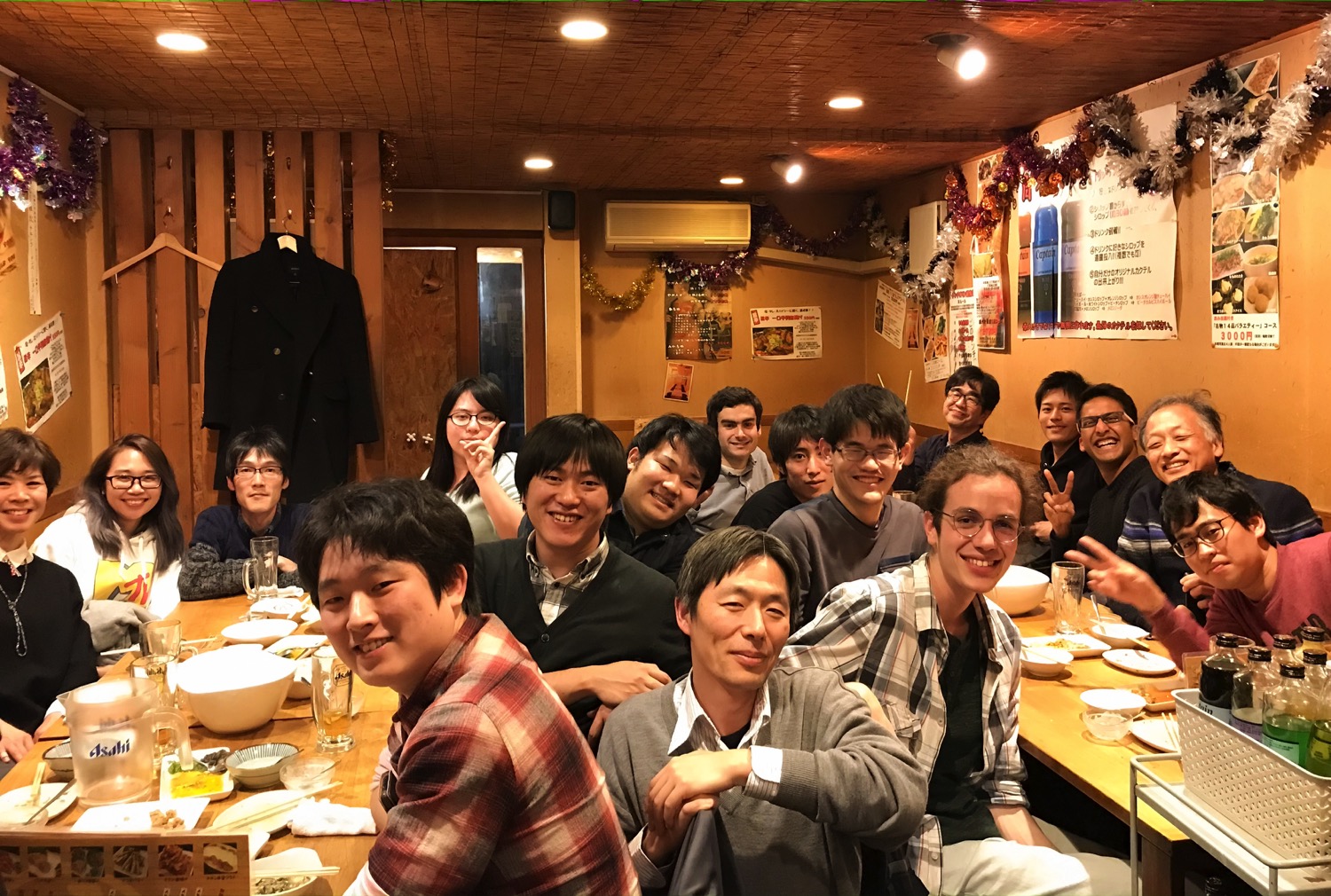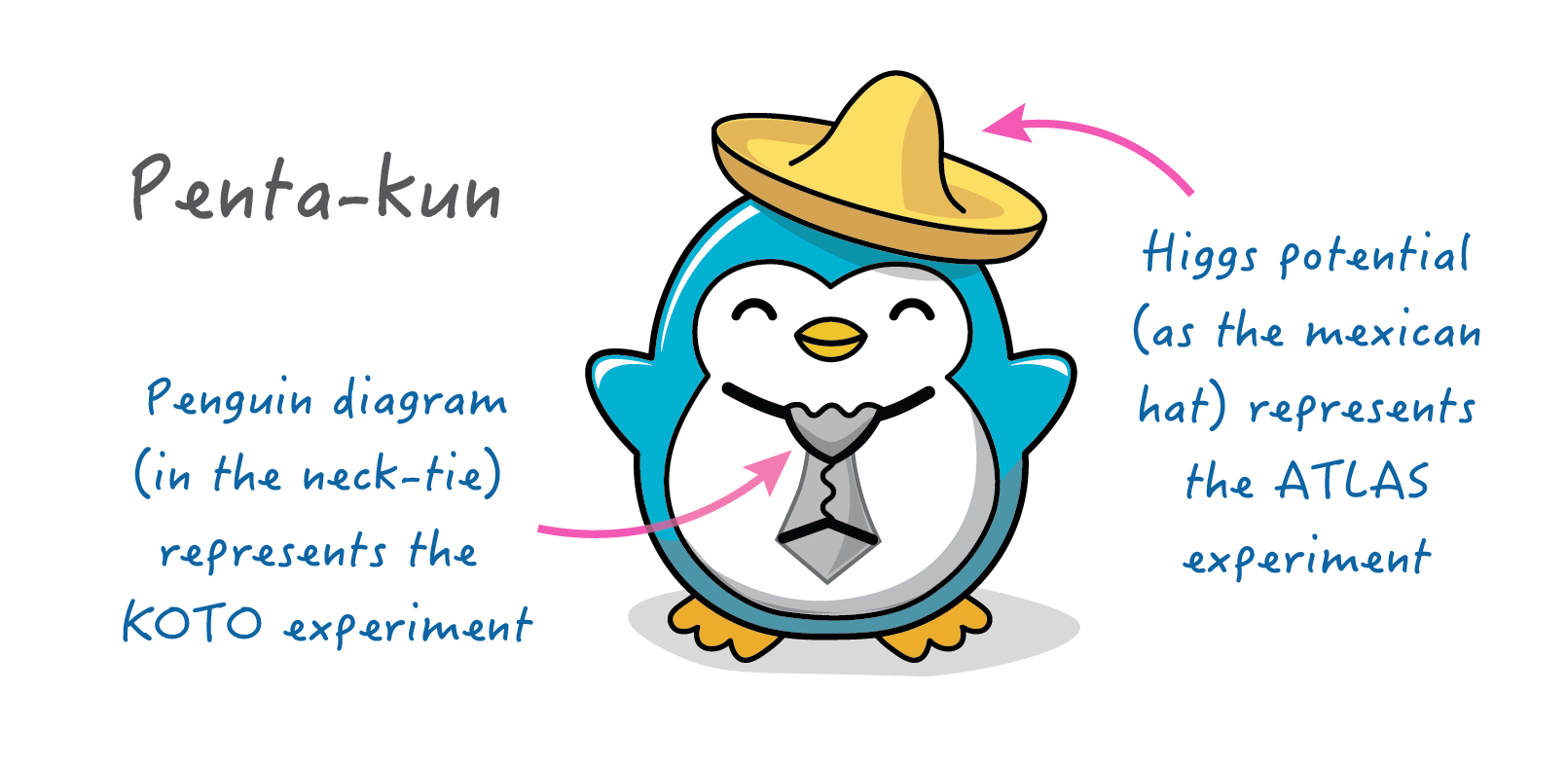Our lab life
Core time?
No core time except weekly meeting and some seminars.
Equpiment and Facilities
Students and researchers share a large room (H501). We have our own desk and a laptop PC (Mac or Linux). Many textbooks on theory, experiment, programming and electronics are available in our own library. A refrigerator, kettle, espresso machine and microwave are available.

Student Life

Undergraduate Students
Undergraduate students are not assigned to the specific experiments, work on a experiment only with students under staff's guidance. In the first half term, they measure muon lifetime to learn how to use measuring instruments and how to analyze data with C++ program. In the later half term, they decide a topic and work on their own graduation research. They also have some seminars on particle physics and experimental technique throughout the year.
Masters Students
At the beginning of the master course, students choose between the KOTO or ATLAS experiment. Many of them work on detectors R&D or data acquisition system. If needed, they visit some institutes (such as J-PARC, KEK or CERN) for further studies.
Ph.D. Students
Ph.D. students will mainly work on physics data analysis.
Other
We discuss freely at anytime, even in drinking parties :) Of course we usually have a chat as well !
Events
We have a group tour once a year. The last time, we visited Tokushima, and did various activities there. You can check out the pics in the Events section. However, due to the COVID-19 situation, we have only being doing online events recently.
Join us!
Everyone is highly welcome! If you wish to visit our laboratory, please contact anyone in the staff.


Nanjolab mascot
The Nanjolab mascot was created in March 2023 as a memento for Prof. Taku Yamanaka's retirement. Hence, it is named as Penta-kun, and this stands for "PENguin of TAKUlab and Nanjolab". The penguins mexican hat shows the Higgs potential, which represents the ATLAS experiment. A penguin diagram is hidden in the neck-tie of the penguin, and this diagram represents the KOTO experiment. We have been contributing to both experiments as the Osaka group, since the time of Yamanka group (a.k.a Takulab).